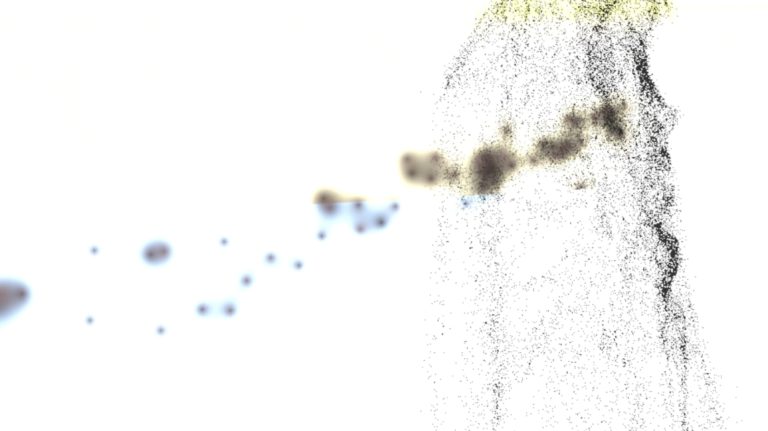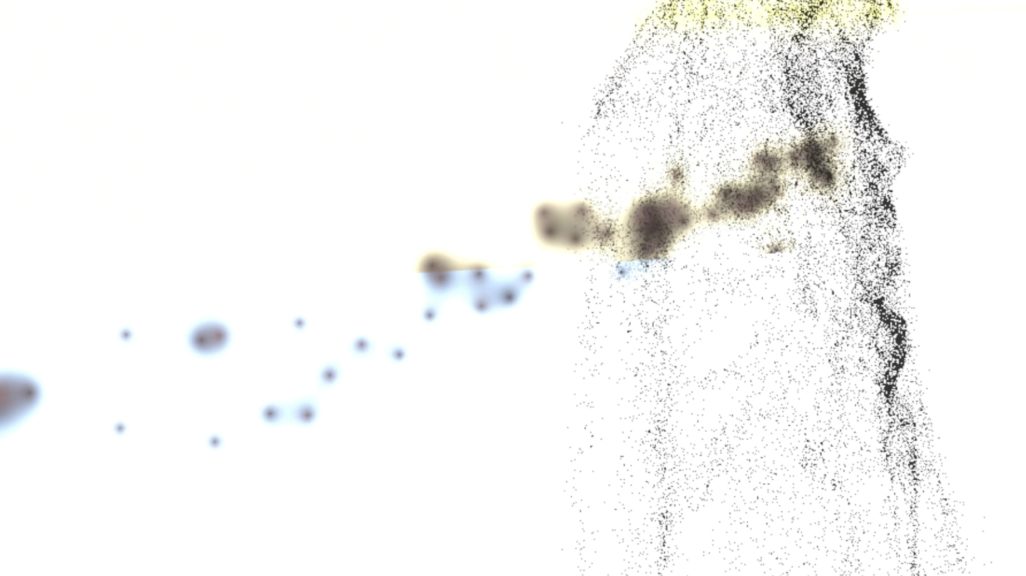In Out Workshop
What is our understanding of our bodily self? How do we describe and represent it? And what happens when our bodily self-consciousness is disrupted? EPFL’s LNCO, or the Blanke Lab, has pioneered the way in which technology is used in neuroscience. Part of their work is focused on how virtual reality can simulate out-of-body experiences, so that the phenomenon can be studied in more depth. This workshop invited the EPFL+ECAL Lab’s research assistants to bring new concepts to the simulation of out-of-body experiences through the development of experimental VR demos.
Digital Dose by Laura Deschl
In 2030, Digital Dose emerges as a revolutionary therapy for mental health, leveraging insights from psychedelic research. Departing from traditional methods, Digital Dose simulates psychedelic experiences without adverse effects. By harnessing the brain’s placebo response, virtual reality induces similar effects as psychedelic substances. The prototype uses AI-generated visuals inspired by Reddit trip reports, offering a promising avenue for accelerated psychotherapeutic processes.


In Or Out by Dan Cai
Inspired by Zhuang Zhou’s Butterfly Dream, this VR experience blends reality and illusion. It features a user’s Kinect-generated avatar surrounded by five duplicates in a circular arrangement, allowing virtual transport between the different entities. This mechanism is designed to induce a sense of dislocation, challenging the participant’s perception of their “original” self as they traverse between the duplicates. The introduction of a butterfly perspective further enriches the experience, by obliging users to navigate their “bodies” outside of their bodies, being elsewhere and nowhere at the same time. This project serves as a platform for engaging with philosophical discussions about existence and identity, presented in an immersive and interactive format.
Vertigo by Andrea Pronzati
In Vertigo, users are immersed in an experiential exploration of disorientation and spatial perception, akin to an out-of-body experience. Through visual and interactive elements, participants experience a loss of control over basic movements, simulating the sensation of vertigo. Using Unity and VR, Vertigo challenges users to explore a surreal environment where spatial orientation becomes fluid. By disrupting traditional perceptions of space and motion, the project aims to evoke a heightened sense of awareness and introspection fostering an out-of-body-like encounter with their surroundings. Immersing participants in an oneiric environment, the project offers a unique opportunity to study the effects of spatial disorientation on human cognition and perception.


Soundscapes by Tickie Bindner
Tickie Bindner has developed a VR experience focused on the concept of self-location influenced by auditory and visual stimuli. The project immerses users in a dynamic soundscape where three-dimensional audio moves throughout a virtual space, creating binaural beats at specific points that can elicit an out-of-body experience. As participants navigate this sonic environment, they encounter changes in their visual representation within the space, further enhancing the sensation of dislocation from their physical self. The experience is a study in how sound and sight can be manipulated to alter one’s perception of presence and placement in a digital realm.
uinic by Luis Rodriguez
Luis Rodriguez developed a VR experience which explores the virtual body as a fragmented vessel which is reconstructed through interactions with virtual replicas of body parts. The experience is composed of an abstract landscape with the user being materialised through a depth camera and a particle system. The user must then navigate through the virtual landscape to find parts of their virtual body, ultimately putting it back together so that it can also materialise in 3D space.

Research Assistants
Dan Cai, Andrea Pronzati, Tickie Bindner, Laura Deschl, Luis Rodriguez Aguayo
Workshop Lead
Emily Groves and Margherita Motta
LNCO COLLABORATORS
Bruno Herbelin and Loup Vuarnesson
Development Support
Gabriel Luthier, Delphine Ribes and Loup Vuarnesson


